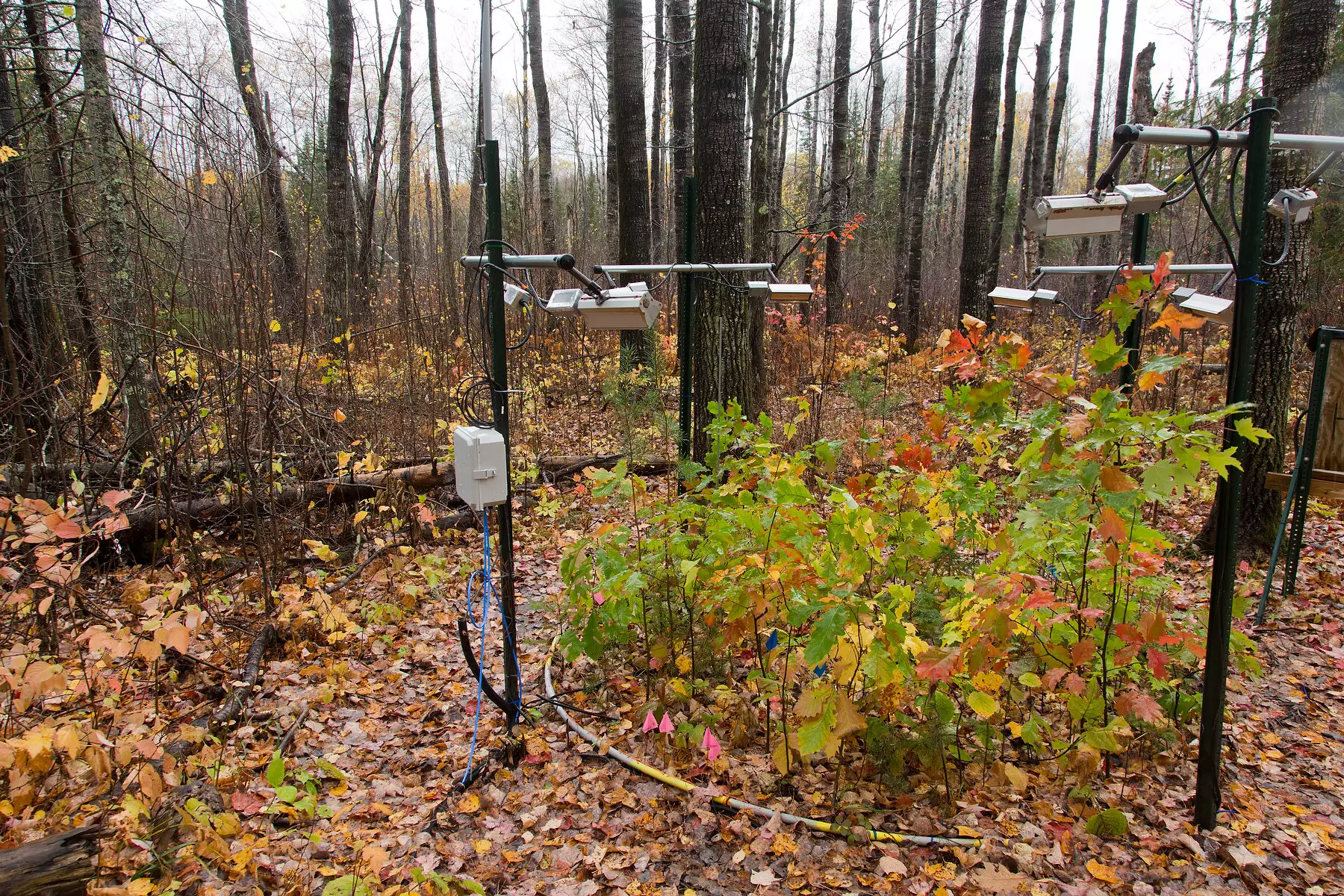Forests play a crucial role in absorbing carbon dioxide from the atmosphere through the process of photosynthesis. However, a recent study led by Peter Reich at the University of Michigan has revealed alarming findings regarding the impact of climate change on carbon storage in forest soils. The experiment conducted by Reich and his team demonstrates that as the planet warms, more carbon is escaping from the soil than is being absorbed by plants, leading to potential consequences for the global climate.
Unlike previous research projects that focused either on soil or air temperatures, Reich’s experiment controlled both soil and above-ground temperatures simultaneously in open-air conditions, making it one of the most realistic studies of its kind. The research, which lasted for over a dozen years, involved investigating two different warming scenarios in northern Minnesota. The results showed that soil respiration, the process responsible for releasing carbon dioxide, increased significantly with higher temperatures, with a 17% increase in carbon release in the more extreme warming case.
The study attributed the increased carbon release to the metabolism of plant roots and soil microbes, which feed on carbon-containing compounds such as sugars and starches. Reich compared the microbial process of releasing carbon dioxide to human respiration, highlighting the similarities in metabolic functions. Despite the rise in carbon release at higher temperatures, the researchers noted that the actual amount of carbon dioxide emitted may have been constrained by soil moisture levels. Warmer temperatures led to faster water loss from plants and soils, resulting in drier soil conditions that limited microbial respiration.
The findings of Reich’s study raise concerns about the long-term implications of climate change on forest soils. With forests storing approximately 40% of the Earth’s soil carbon, any increase in carbon loss from soils could have detrimental effects on the global climate. As temperatures continue to rise, the imbalance between carbon sequestration and release in forest soils could exacerbate the levels of carbon dioxide in the atmosphere, contributing to further climate change.
The research conducted by Peter Reich and his team sheds light on the complex interactions between rising temperatures and carbon dynamics in forest soils. While forests are essential for capturing and storing carbon, the impact of climate change on soil respiration poses a significant challenge to maintaining carbon balance. By gaining a better understanding of these processes, scientists can improve climate change forecasting and develop strategies to mitigate the effects of global warming on forest ecosystems. The study underscores the urgent need for further research and conservation efforts to protect the vital role of forests in combating climate change.


Leave a Reply